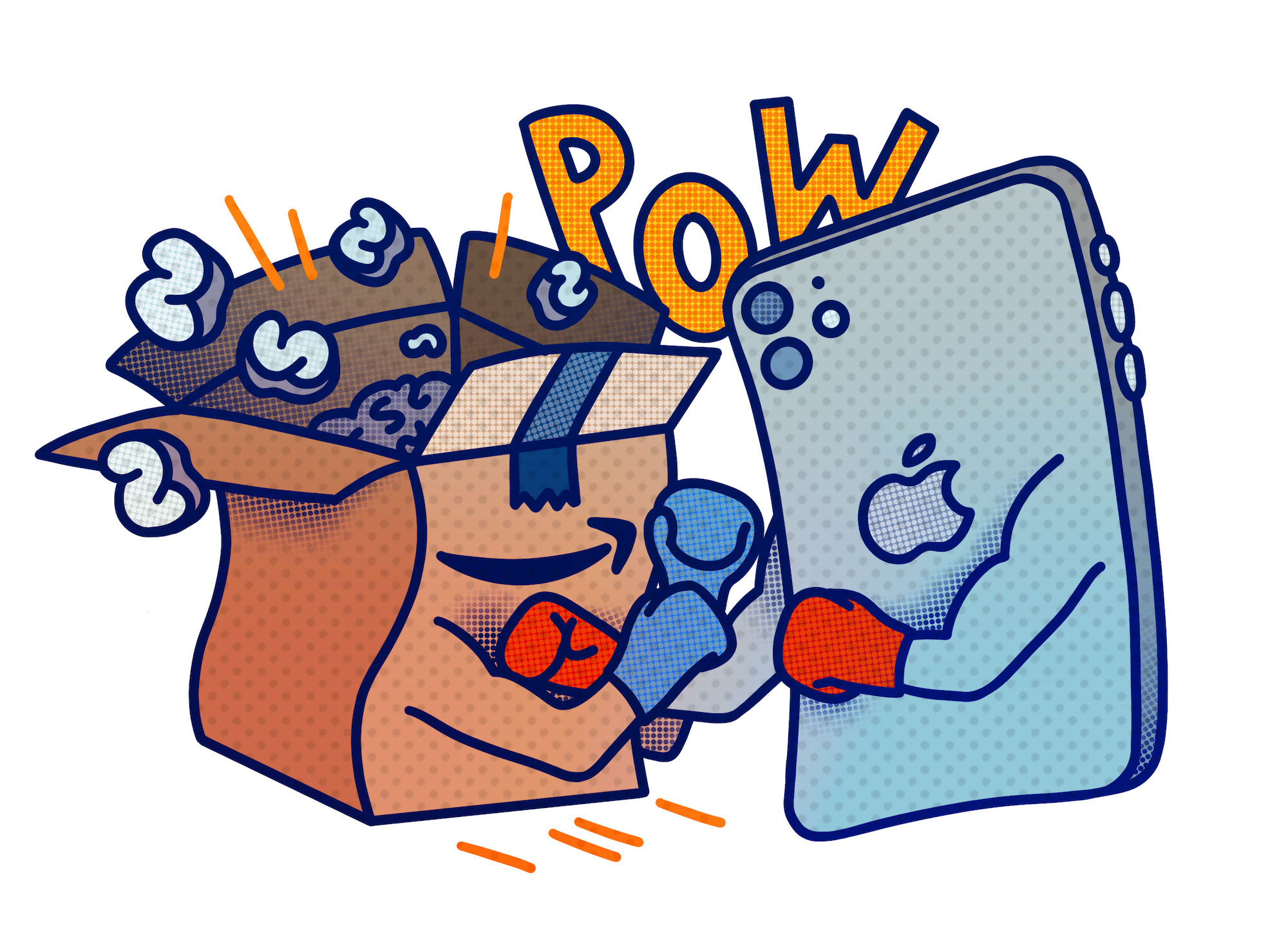The world of technology has been a feverous, gladiatorial effort of epic proportions over the past few decades as billionaire companies are pitted against each other, ferociously fighting over the attention of consumers. Are you iPhone or Android? Apple or Windows? PlayStation or Xbox? These questions exist in our minds constantly, and the brands we dispense loyalty to are responsible for a myriad of cultural statuses in our lives. The phone we use, the car we drive and the TV we own all determine our cultural class status. In that gladiatorial fight between big businesses, we the consumers are the emperors that decide the gladiators’ fates.
On July 29, the United States House of Representatives’ Antitrust subcommittee led by representatives David Cicilline and Joe Neguse held a historic meeting with CEOs Mark Zuckerberg, Jeff Bezos, Tim Cook and Sundar Pichai, the heads of four of the five biggest tech companies in the U.S. (the fifth, Microsoft’s Satya Nadella, was absent.) The four were grilled by the subcommittee, but rather, the grilling was more of a lukewarm confrontation with little to no follow-up questions to the menagerie of blatant lies displayed by the executives. The hearing showed that a partial, marginal handful of these representatives might care, but in the broad-scale look at the economy, these companies are good for the U.S.’s image. They are good for the image of our capitalist powerhouse, dominating the world market.
Back to the hearing. The primary focus of the subcommittee is to put pressure on companies that exhibit anti-competition and monopolistic behaviors such as suppressing other companies or developers and buying up competitors. The tech industry has suffered greatly at the hand of billionaire business in the last few decades. There is an acronym used in economics and in the CS job market, namely that of FAANG—Facebook, Apple, Amazon, Netflix and Google. Four of these five companies, excluding Netflix, have exhibited ruthless, animalistic behavior towards their competitors, exploiting legal loopholes, bribing representatives and senators and boosting their stocks with unethical business acquisitions. Facebook is blatant about this, using its money to scoop up possible competitors such as Instagram and WhatsApp—after all, who needs to worry about competition in the social media space when you own the competition?
The legacy of Mark Zuckerberg is infamous, partially due to the success of 2010’s The Social Network. Facebook and the Zuck have built their business on the back of exploitation, corruption, bribery and lies. The history of Facebook has been rife with scandals from the day it gestated in Zuckerberg’s Harvard dorm room, where a malicious site strived to create rifts between female students to the current day, where misinformation and indoctrination plague the site and data leaks through the servers like a sieve. Facebook is inseparable from controversy—it is controversy. Throughout the last decade, it has become so deeply rooted in life throughout the world that it has become unavoidable in our daily life.
Apple and Google are equally as suppressive in their competitive tendencies. Cook and Pichai, CEOs of Apple & Alphabet, respectively, lied directly to the subcommittee about their companies’ mobile storefront regulations. The App Store and the Google Play Store have, since their inception, been a thorn in the paw of any developer looking to put an app on the mobile platform, whether it is a notepad or an innovative new game. These storefronts are an unfettered monopoly on the mobile platform. If you want to make an app for smartphones, you must go through either one of these storefronts. There is no other way to put your software on a user’s device unless their phone is jailbroken (illegally “unlocking” your phone to give the user more freedom with their device.) There used to be similar issues with the PC market until the Microsoft lawsuits of 2001, where the U.S. government ruled Microsoft could not restrict developers and users from putting custom software onto their Windows PCs. If you want to put software on a Windows computer, you can do so—there is nothing stopping you besides your technological literacy and ability to click the install button.
The recent Epic Games/Apple/Google trifecta lawsuit shows an attempt at cracking down on the clear anti-competition policies that Apple and Google enact on their storefronts. The fierce regulations and hefty profit cut on the storefronts is more than just private companies curating their platform—it’s a monopoly. Smartphones have become essential to daily life, just as PCs did in 2001, and it’s time for the U.S. to force Apple and Google to change.
These practices of buying, selling and replicating rivals hurts more than just small developers and companies. It hurts consumers and people, too. When a small selection of trillion-dollar market-cap companies have a strict, clear-cut monopoly on one of the world’s biggest industries, it allows those companies to get away with anything. In 2017, the Federal Communications Commission, led by chairman Ajit Pai, repealed the net neutrality laws enacted in 2005. These laws were created to give power to the people when it came to their internet privacy. Net neutrality laws stated users of the internet were entitled to their privacy of information. They stated Internet Service Providers such as Comcast and AT&T could not restrict a users’ internet speeds to certain platforms or websites, and they could not restrict access to or control what a user can or cannot use the internet for.
The outrage and reaction to the repeal of these laws was immense, largely because many of the senators that voted to repeal net neutrality were paid large bribes by telecom giants such as Comcast and AT&T. The vast power, size and scale of these companies allows them to bully their way into influencing policy and politics.
When the U.S. claims it will pressure companies like Facebook and Google over privacy, encryption and security, it is not because it wants to protect its citizens. It is because the U.S. is angry Google gets to spy on you but it cannot. The millions of angry auto-generated phone calls and emails sent by infuriated Reddit, Netflix and Twitter users to their local representatives does not change anything, because in a capitalistic society and government, money outweighs everything. The antitrust subcommittee claims to or subtly attempts to rail against or grill these CEOs, but it ultimately does not care. Security is a sham. Why would the U.S. government care about the Facebook-Cambridge Analytica scandal when its own security agencies have been spying on the common citizen for decades?
The state of digital privacy in the U.S. is, at this point in time, past the point of no return. We have dug a hole too deep to recover from the monopolistic dystopia that the FAANG companies have built. The mere fact these companies were ever able to grow to the titans they have become should be seen as a colossal, unatonable failure at the hands of the government. We must grow and learn to accept that we live in a world without privacy, without security, without the confidence of our private lives; and that it will only get worse from here. Privacy is dead—and capitalism killed it.





